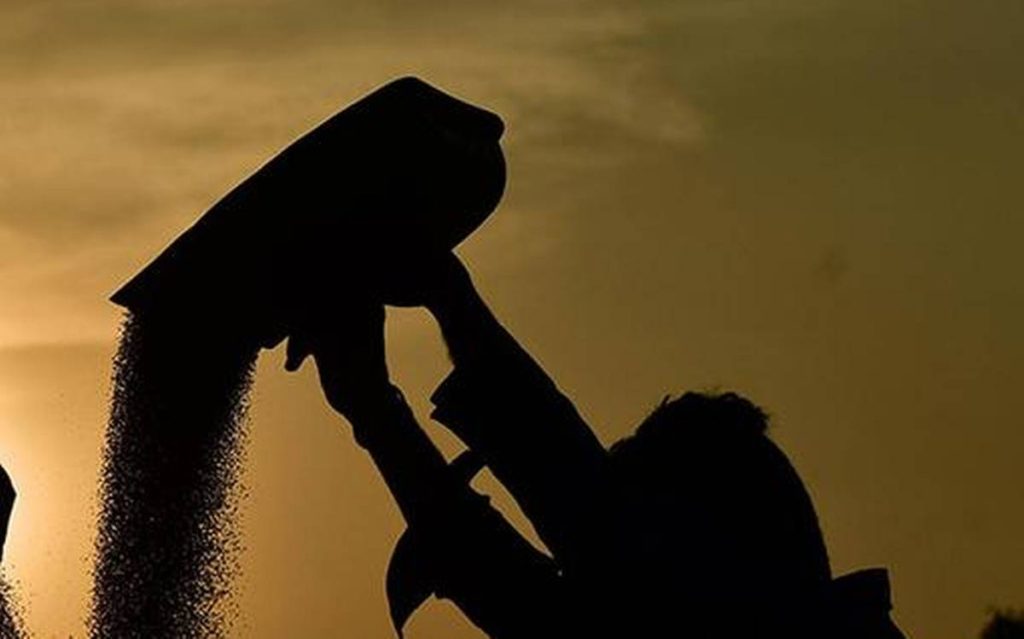Due to certain peculiarities of agriculture, farmers as producers, unlike their counterparts elsewhere, are not in a position to decide the price of what they produce. Price discovery through sheer free play of supply and demand that rarely exists elsewhere, prevails in agriculture. That, unfortunately, relegate the farmers to price ‘takers’ rather than price ‘makers’, and that is the root cause of the problem. Keeping this serious deterrent in view, the government of India has been ‘intervening’ by declaring Minimum Support Price (MSP) to put a check on ‘free market forces’ so that the prices of farm commodities are not pushed below that bench mark level.
Though MSP is announced for 23 crops every year, actual procurement by the government may not cross even 5 percent of farm production. Benefit of such procurement accrues mostly to paddy and wheat growing farmers of Punjab, Haryana and UP. According to a study by the Karnataka Agricultural Prices Commission (KAPC); an advisory body created first time in the country, 69 percent of agricultural commodities are being transacted at prices below MSPs in different APMCs in recent year in the state.
The situation at the national level is no different, as a majority of transactions were found to be below MSP – for paddy, they were below in 12 states, for wheat and maize in seven states, bajra nine states and ragi six states. And hence, the farmers’ organizations are unequivocal in not only demanding a repeal of those unwanted farm laws but also candid in their claim for a ‘legal recourse’ to ensure that transaction of all farm commodities should be at prices not below the government declared MSP.
The Road Map: The KAPC, in this backdrop has proposed the Statutory Minimum Purchase Price (SMPP) based on either MSP or cost of cultivation for all farm commodities followed by an amendment to state’s APMC Act along with penalty and punishment so as to ensure that no buying from farmers takes place below the SMPP anywhere in the State. A similar amendment was also suggested to the Essential Commodity Act that is under the preview of the GOI so as to introduce a uniform law across the nation. A private member bill; “The Farmers’ Right to Guaranteed Remunerative Minimum Support Price (MSP) for Agricultural Commodities Bill” that was introduced in the parliament in 2018 may be reconsidered again in this regard.
In the mean time Government of Punjab passed its own Agriculture Bills by amending and adding special provisions to centre’s new three Acts and legalized the MSP, with penalty and punishment for wheat and paddy in the state. Other non BJP ruled states are also contemplating for such action. What ever may be the legal provision and constitutional validity of such responses by the state governments, it will definitely compel the centre to concede to the loud demand of agitating farmers across India.
The Market Assurance Scheme once proposed by the centre empowers the state government to undertake procurement on time so as to siphon off the surplus. As permitted by the centre, the state government should undertake a direct procurement up to 25 percent of the production of the crops that are under the coverage of MSP. The novel Price Deficiency Payment Scheme (PDPS) (compensating the difference between MSP and market price) needs to be extended to other commodities especially horticultural crops to the extent of 70 percent of production that is double the current market arrivals in a state like Karnataka.
With these two crucial interventions preceded by a legal recourse, it is possible to arrest the price fall below SMPP for the main farm commodities of Karnataka. This requires an estimated annual budget outlay of around rupees 11,500 crores. The financial requirement mentioned above is based on transactions of past 3 years at different APMCs for 22 crops that occupy 85 percent of Karnataka’s gross cropped area. Of these 22 crops, 13 crops have MSP protection which can be procured directly for which around Rs. 10,500 is needed. Remaining crops such as tomato, onion, mango and arecanut, (an important commercial crop of the state) may be supported under PDPS for which around Rs. 1000 crore is enough, the details are in the table below.
As Karnataka contributes around five percent of India’s total farm production, by a simple extrapolation we can estimate that a lump sum of around rupees 2.30 lakh crores Price Stabilization Fund may be needed to ensure farmers’ right to a remunerative price discovery in principal farm commodities of the nation as a whole.
Supportive Measures: In the mean time farmers need adequate pledge loan to facilitate storage of their produces. Private traders, FPOs and co-operatives who will be compelled to buy at MSP need adequate support and incentives as provisioned under the Centre’s innovative Private Procurement and Stockist Scheme. The price that needs to be legalized – either current MSPs or the one recommended by Swaminathan that ensures a margin of 50 percent or a ‘Reserve Price’ that covers just cost of production as indicated by the Committee on Doubling Farmers’ Income must be settled first.
Further, the utilization of procured farm commodities for public distribution and several other programs envisioned under the National Food Security Act 2013 is a win – win solution to the present problems. Measures such as district crop plan, crop specific production policies coupled with advanced market intelligentsia like price forecasting and supply projection will be handy to effectively address the mismatch between supply and demand. An institutional arrangement such as Farmers’ Income Commission with full autonomy to operationalize all the above so as to infuse an element of hope among the agitating farmers is needed at this point of time.
Table: Financial Requirement to Siphon Off Surplus and Ensure Farmers’ Right to Remunerative Price for Principal Farm Commodities of Karnataka
| Crops | Production | Transaction above MSP* | Financial Requirement
( Crore Rupees) |
|
| Lakh tons | % | For Procurement of 25% of production | For PDPS** for
70% of production |
|
| Crops with MSP protection
Paddy, Jowar (Hybrid. & Rabi), Ragi, Maize, Bajra, Tur, Gram, Urud, Moong, Groundnut, Soyabean, Sunflower, Copra, Coconut |
164 | 28 | 10,508 | |
| Crops without MSP
Tomato, Onion, Potato, Chilli, Mango |
73 | 52 | 842 | |
| State’s Special Crop
Arecanut (Red & Chali) |
4 | 14 | 216 | |
| Total | 241 | 31 | 10,508 | 1,058 |
(Based on 3 years average: 2017-18 to 2019-20)
* MSP considered is for the year 2018-19,
** PDPS is based on MSP as well as Actual Costs + Family Labour (Cost A1 + FL) for the year 2017-18
(Author is Retired Professor of Agril. Economics, UAS Bangalore and Form Chairman, Karnataka Agricultural Prices Commission, GOK.)




